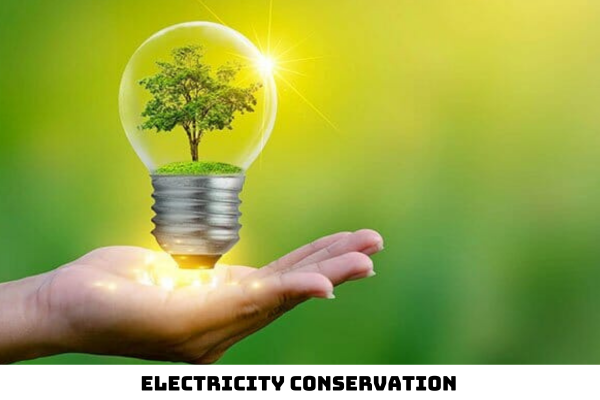Does the Government of Vietnam require to only use the air conditioner at 26 degrees Celsius or higher? What is the promotion of conserving electricity in households?
- Does the Government of Vietnam require to only use the air conditioner at 26 degrees Celsius or higher?
- Does the Prime Minister of Vietnam encourage people and households to install and use self-consumption solar power systems?
- What are the responsibilities of manufacturing enterprises in electricity conservation in Vietnam?
Does the Government of Vietnam require to only use the air conditioner at 26 degrees Celsius or higher?
On June 8, 2023, the Prime Minister of Vietnam issued Directive 20/CT-TTg 2023 on promoting electricity conservation until 2025 and the subsequent years.

Accordingly, the use of air conditioners at 26 degrees Celsius or higher is one of the requirements of the Prime Minister of Vietnam for electricity conservation in households.
Specifically, according to subsection c Section 1 of Directive 20/CT-TTg of 2023 as follows:
1. Ministries, ministerial-level agencies, Governmental agencies, People's Committees of provinces and centrally affiliated cities (hereinafter referred to as provinces), enterprises and mass organizations shall adopt a number of solutions as follows:
...
- Regularly practice saving electricity at home by: turning off electrical appliances when leaving the room and cutting off the power source completely if the appliances are not in use; use the air conditioner only when necessary and set it to 26 degrees Celsius or higher in cooling mode; prioritize purchasing high-efficiency electric equipment and appliances, or those labeled with high-efficiency energy; minimize the use of incandescent light bulbs.
...
Thus, according to the above-mentioned content, the Prime Minister of Vietnam instructed households to only use the air conditioner only when necessary and set it to 26 degrees Celsius or higher in cooling mode.
Does the Prime Minister of Vietnam encourage people and households to install and use self-consumption solar power systems?
Pursuant to the contents of subsection c Section 1 of Directive 20/CT-TTg of 2023 on conserving electricity in households as follows:
1. Ministries, ministerial-level agencies, Governmental agencies, People's Committees of provinces and centrally affiliated cities (hereinafter referred to as provinces), enterprises and mass organizations shall adopt a number of solutions as follows:
...
c) Conserving electricity in households:
- Use electrical equipment with energy labeling according to the Decision No. 04/2017/QD-TTg dated March 9, 2017 of the Prime Minister stipulating the list of equipment and appliances to which the mandatory energy labeling and minimum energy efficiency standards are applied, and the roadmap to their implementation.
- Regularly practice saving electricity at home by: turning off electrical appliances when leaving the room and cutting off the power source completely if the appliances are not in use; use the air conditioner only when necessary and set it to 26 degrees Celsius or higher in cooling mode; prioritize purchasing high-efficiency electric equipment and appliances, or those labeled with high-efficiency energy; minimize the use of incandescent light bulbs.
- Encourage the installation and use of self-consumption solar power systems for on-site use, hot water heating systems from solar energy.
Thus, accordingly, the Prime Minister of Vietnam encourages people and households to install and use self-consumption solar power systems for on-site use, and hot water heating systems from solar energy.
What are the responsibilities of manufacturing enterprises in electricity conservation in Vietnam?
Pursuant to subsection dd Section 1 of Directive 20/CT-TTg of 2023 as follows:
1. Ministries, ministerial-level agencies, Governmental agencies, People's Committees of provinces and centrally affiliated cities (hereinafter referred to as provinces), enterprises and mass organizations shall adopt a number of solutions as follows:
...
dd) Conserving electricity in manufacturing enterprises:
- Encourage the implementation of the program in which participating enterprises will implement solutions on energy conservation, electricity conservation, rooftop solar power installation and consultancy on adoption of energy use solutions in a cost-effective and efficient manner.
- Speed up the implementation of the Prime Minister's Decision No. 279/QD-TTg dated March 8, 2018, which outlines the National Program on managing electricity demand during 2018-2020 and includes a vision for 2030.
- Develop a program to mobilize the backup power generation in case of power shortage.
- Develop and adopt solutions for cost-effective and efficient use of electricity including: ensure the correct use of load capacity and load profile; implement a reasonable production plan; minimize the mobilization of high-energy-consumption equipment and machinery during peak hours; avoid running electrical equipment without load.
- Install and integrate renewable energy sources, like solar energy and wind energy, into the internal energy system; prioritize the use of high efficiency-labeled equipment.
- Facilities that consume at least 1 million kWh of electricity annually are required to save at least 2% in electricity consumption per product unit each year or save at least 2% of total electricity consumption each year; and ensure the compliance with the Law on cost-effective and efficient use of energy and other legal documents on cost-effective and efficient use of energy.
- Industrial production enterprises that are regulated by legal documents stipulating the energy consumption norm per unit of product must comply with the prescribed energy consumption norm.
- Business facilities are encouraged to develop and apply the energy management system according to ISO 50001:2018. Conduct periodic energy audits, develop and realize annual objectives and adopt solutions on cost-effective and efficient use of energy.
- Promote the use of advanced energy-efficient techniques and improve technology in energy-intensive industries, optimize production materials, eliminate outdated production capacity, continue to improve energy efficiency through investment in energy-efficient projects.
- Initiate and apply technical guidelines on electricity conservation and cost-effective and efficient use of energy, utilize technology manuals on energy conservation for energy-intensive industries nationwide.
Accordingly, in electricity conservation, manufacturing enterprises in Vietnam are responsible for performing the above-mentioned tasks.
LawNet